Tokyo, a vibrant metropolis known for its dazzling lights and technological wonders, also stands out as a model of cleanliness and environmental responsibility. This bustling city is not only home to neon-lit streets but also boasts streets remarkably free of litter, a testament to the deep-rooted environmental consciousness ingrained in Japanese culture.
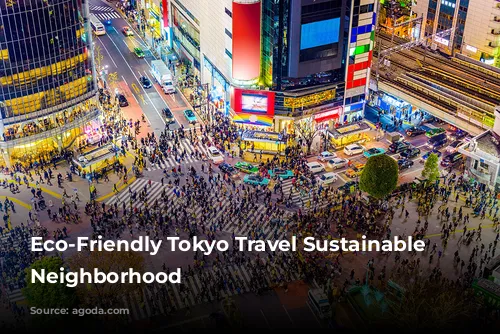
A Green City Built on Sustainability
This commitment to a cleaner planet extends beyond the streets, with Tokyo implementing meticulous waste separation and recycling systems in public spaces like parks and subway stations. Tokyo’s environmental consciousness is evident in its efficient public transportation system, making it a preferred mode of travel over private cars. This emphasis on sustainable transportation is further underscored by the city’s widespread use of hybrid vehicles like Toyota’s Prius, demonstrating its dedication to reducing its carbon footprint.
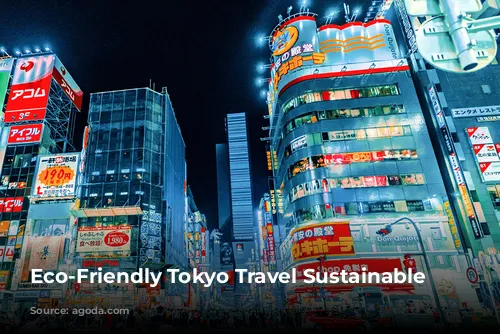
Sustainable Travel in Tokyo: Embracing the Local Ethos
As a traveler in Tokyo, you have the opportunity to actively contribute to the city’s sustainable ethos. Embracing the local practice of minimizing waste and recycling is an excellent starting point. Tourists are encouraged to utilize the world-renowned public transportation systems, including the high-speed shinkansen, or bullet train, which offers a speedy and eco-friendly way to traverse the country. The shinkansen not only whisks you across the country but also provides breathtaking views of the Japanese landscape, including the iconic Mount Fuji. Cycling offers a healthy and enjoyable alternative, allowing you to immerse yourself in the city’s vibrant atmosphere. Simple actions, like bringing your own chopsticks and politely declining extra packaging, also align with Tokyo’s eco-friendly practices.
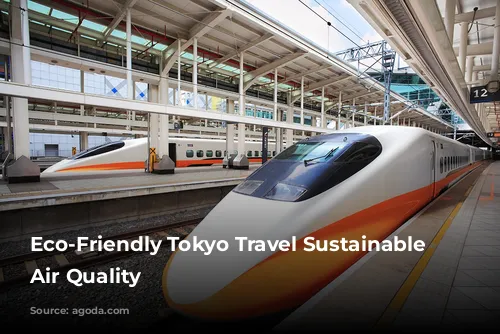
A Legacy of Transformation: Tokyo’s Air Quality Journey
The story of Tokyo’s air quality is a remarkable journey of transformation. During the 1970s, Japan grappled with severe pollution issues, a consequence of rapid industrialization. The implementation of the Basic Law for Environment Pollution Control marked a turning point in the nation’s history, addressing the health challenges posed by pollution. Despite transitioning away from fossil fuels, Tokyo still faces challenges in completely eliminating its reliance on them. While air quality has improved significantly, the city remains vigilant, recognizing the ongoing threat of pollution.
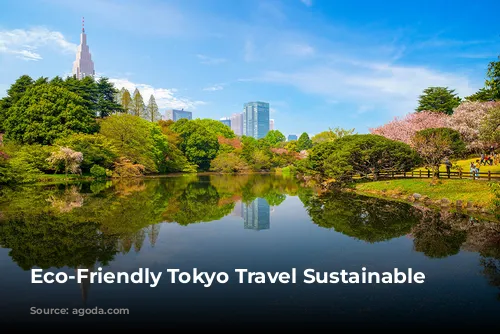
Respecting Japanese Cultural Nuances
Japan is renowned for its structured society where loyalty, politeness, and collective harmony are deeply valued. As a visitor, understanding and respecting these cultural tenets is crucial. Japanese society places a high value on personal responsibility, education, and hard work, which is reflected in their low crime rates and orderly public spaces. When interacting with locals, remember that the Japanese handshake is typically gentle, accompanied by minimal eye contact and often a respectful bow. Nodding is essential during conversations, signifying understanding and respect. Dress conservatively, avoid loud conversations, and refrain from public displays of affection to align with local customs.
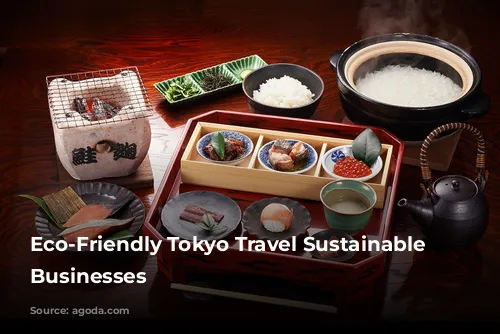
Supporting Local Businesses: A Sustainable Travel Tip
One of the most impactful ways tourists can contribute to sustainable travel in Tokyo is by supporting local businesses. By choosing locally owned hotels, organic restaurants, and local artisans, travelers not only enjoy an authentic experience but also contribute to sustainable economic practices. The city offers numerous opportunities to engage in eco-friendly activities, from exploring farmers’ markets to participating in community-centered experiences that highlight sustainable living.
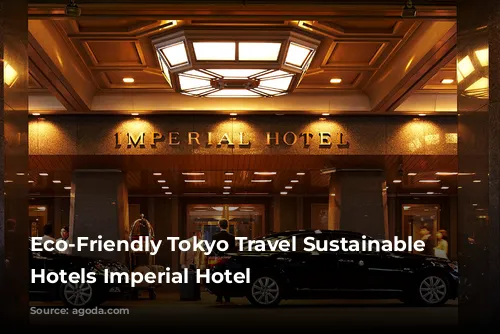
Eco-friendly Accommodations in Tokyo
When it comes to eco-friendly accommodations in Tokyo, there are abundant options catering to various preferences and budgets. Choose to stay in some of the best neighborhoods, like Shinjuku and Shibuya, as these areas not only offer vibrant nightlife and shopping but also provide easy access to green transportation options.
Luxury and sustainability coexist harmoniously in Tokyo’s hotel scene. The Imperial Hotel Tokyo and the Palace Hotel Tokyo are prime examples of this blend, offering luxurious amenities while upholding sustainable practices. The Imperial Hotel, with its rich history and elegant design, is a landmark in itself. The Palace Hotel Tokyo, conveniently located near the city center, provides guests with easy access to major attractions and green amenities. Explore these luxurious yet eco-friendly options further at Best Hotels in Tokyo: 13 Best Luxury & 5-Star Accommodations.
For travelers seeking accommodations near Tokyo’s famous landmarks, there are numerous hotels near Tokyo Tower and Tokyo Station that offer comfortable and sustainable lodging options. The Tokyo Station Hotel, for example, is a luxurious establishment offering stunning views and located in the upscale Marunouchi district, known for its shopping and dining. For more information on these hotels and to make a booking, visit Where to Stay in Tokyo | Cool Hotels by Popular Attractions.
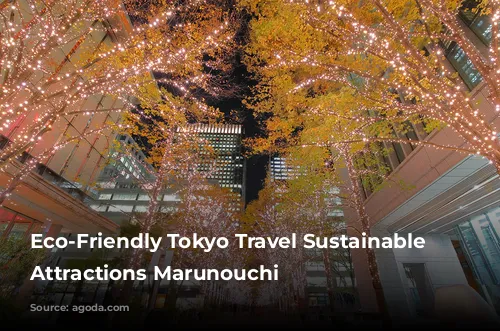
Going Beyond the Ordinary: Green Initiatives in Tokyo
Visitors to Tokyo can take their commitment to sustainability a step further by participating in various green initiatives. Engaging with grassroots organizations dedicated to environmental preservation and opting for carbon offsetting for flights are effective ways to make a positive impact.
Tokyo, a city that embraces both modernity and sustainability, invites you to experience its unique charm while leaving a positive footprint on the environment. By embracing sustainable practices during your visit, you become part of Tokyo’s ongoing story of environmental consciousness and responsible living.








